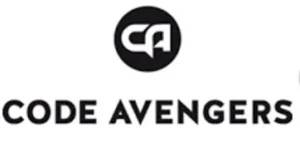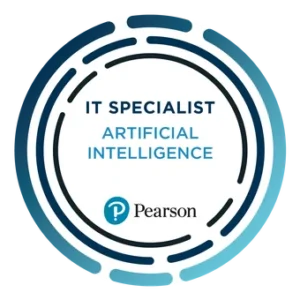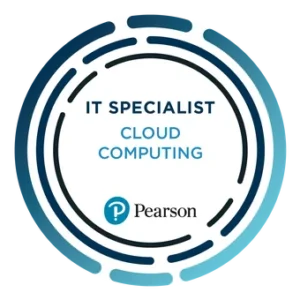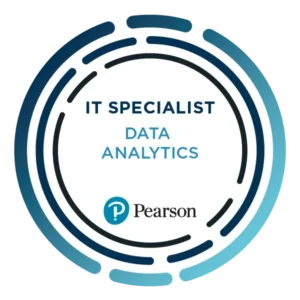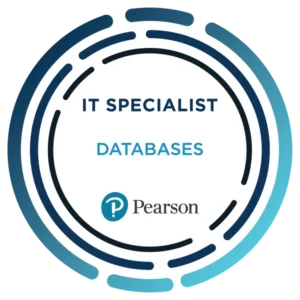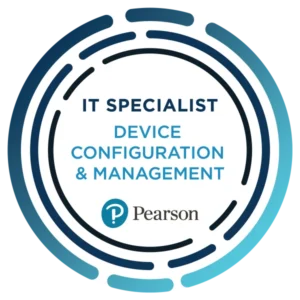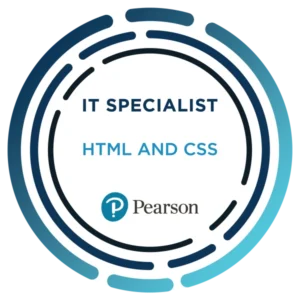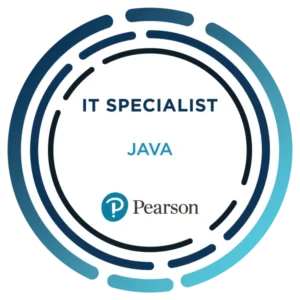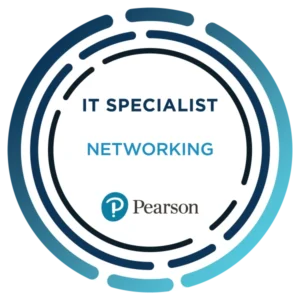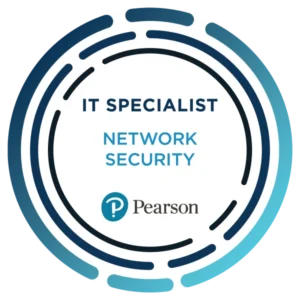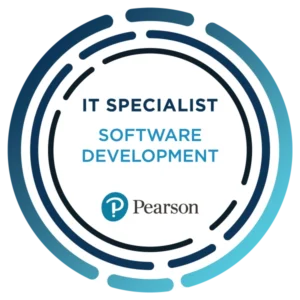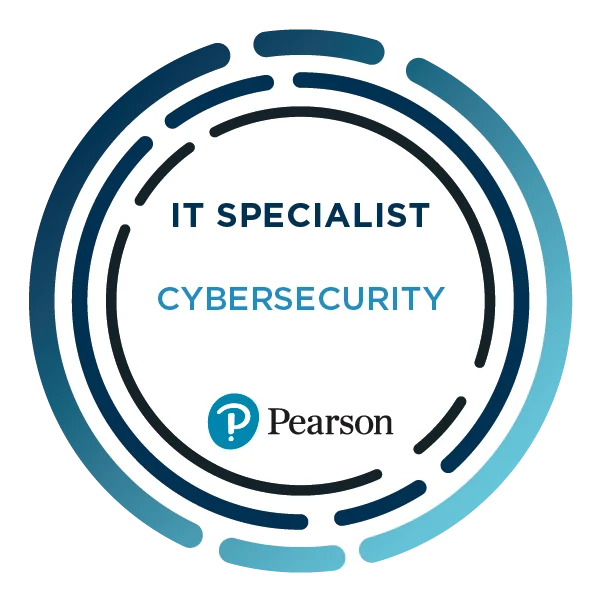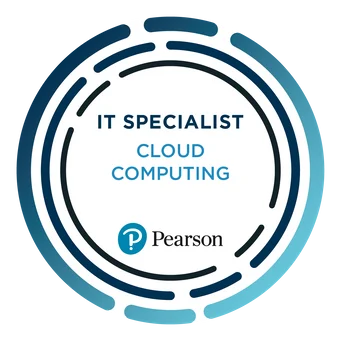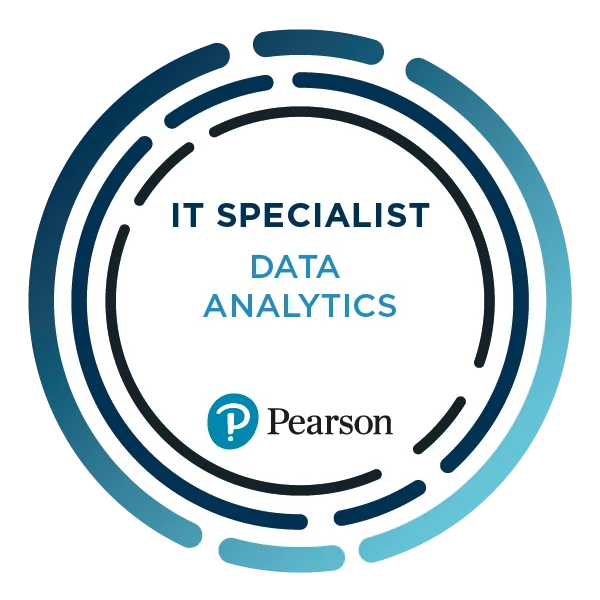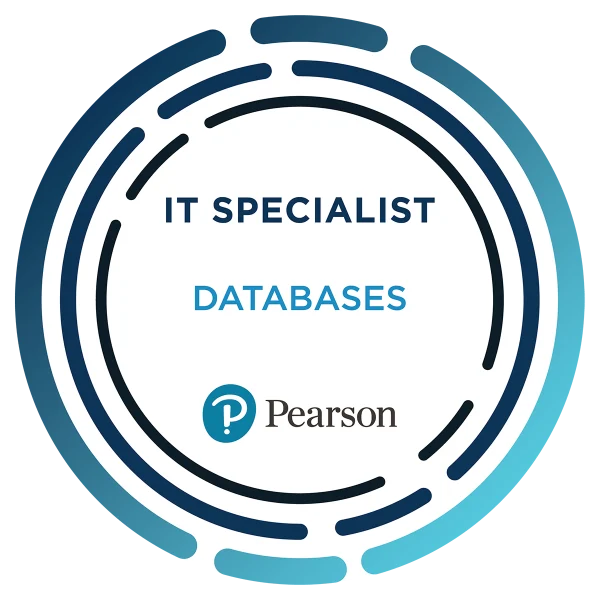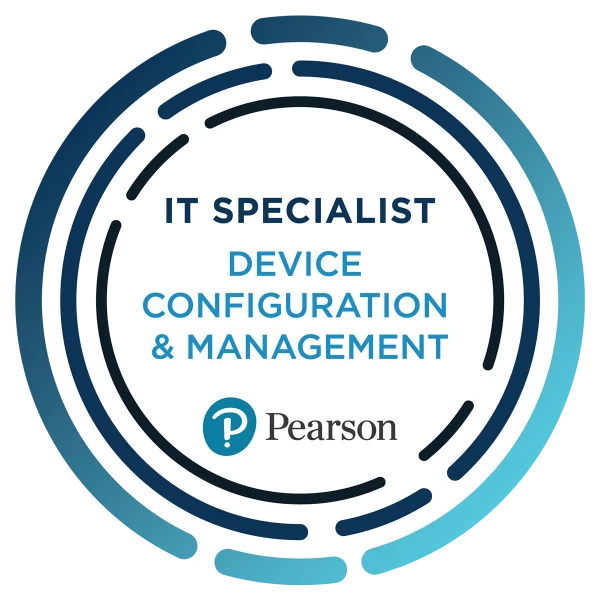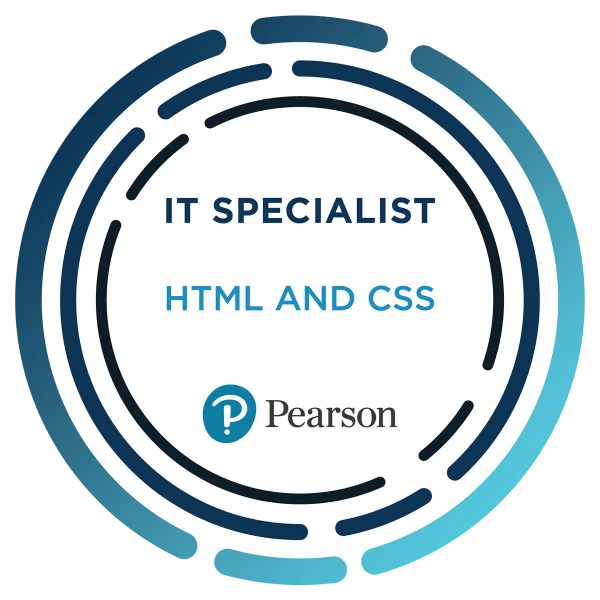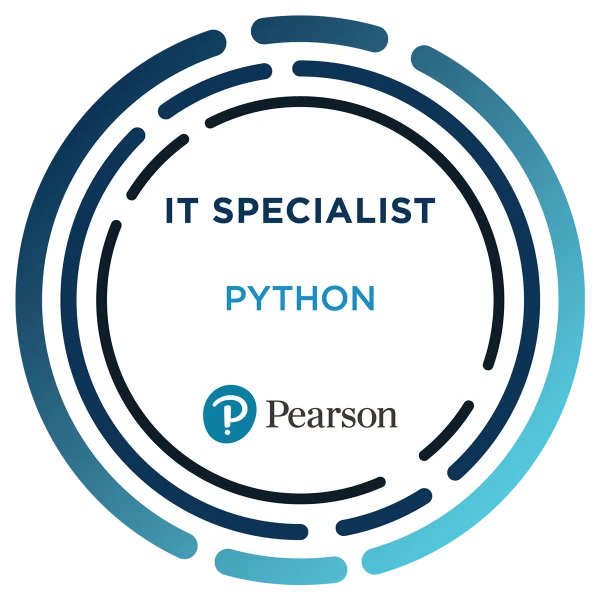Pearson IT Specialist Certification
The Information Technology Specialist program is a way for individuals to validate foundational IT skills sought after by employers. The IT Specialist program is geared toward candidates who are considering or just beginning a path to a career in information technology. Candidates can certify their knowledge in a broad range of IT topics, including software development, database administration, networking and security, device management, and web development.
Many companies such as CertNexus, SAS, Cisco Networking Academy, ISTE, and more have recognized IT Specialist exams. Click here for more information on industry recognition.
The American Council on Education’s College Credit Recommendation Service (ACE Learning Evaluations®) has evaluated and recommended college credit for the IT Specialist program. The recommended credit amount is three credits per IT Specialist exam passed.
Pathway to Success
Certiport’s full pathway solution can prepare candidates for a successful career in Information Technology with tailored learning materials, practice tests, and certification exams.
Learning materials for IT Specialist
The pathway to certification success
Preparing your students for certification is a big responsibility, so let Certiport make your job easier and more effective with specially-selected course materials and practice tests.
Watch this brief video to see how learning products can work for you.
Practice tests for IT Specialist
CertPREP Practice Tests, powered by GMetrix
These performance-based assessment and test preparation tools help individuals achieve certification credentials. Many of your students will be anxious to assess their knowledge of applications prior to taking the certification exams. Additionally, we recognize the need for educators to properly assess an individual’s knowledge. Certiport provides CertPREP Practice Tests that are powered by GMetrix. These tests, with included reporting and insight features, ensure your students are adequately prepared to take their certification exam.
Why CertPREP Practice Tests?
- Enhance learning through self-paced practice questions
- Build familiarity with the testing environment
- Increase confidence towards certification exams
- Better prepare students to pass certification exams
CertPREP Practice Tests are customizable
CertPREP Practice Tests are customizable, allowing you to create a highly-effective environment conducive to student-centered learning. CertPREP Practice Tests offer two different modes:
Testing mode:
- Students experience what the certification exams will be like
- Timed practice tests present scenarios to perform just like the actual certification exam
Training mode:
- Students work at their own pace as they receive feedback and step-by-step instructions for each question
Pearson IT Specialist Certification
The Information Technology Specialist program is a way for candidates to validate foundational IT skills sought after by employers. The IT Specialist program is aimed at individuals who are considering or just beginning a path to a career in information technology.
While meaningful to any job seekers and candidates interested in IT careers, these exams are best suited for ages 14 and up. No Bachelor’s degree or other prerequisites are necessary, other than what is called out in the Objective Domains, which are linked below. These stackable exams are valid from the date they are passed and are a one-time issuance. The target candidate has approximately 150 hours of instruction and hands-on experience with the exam topic.
Available certifications



